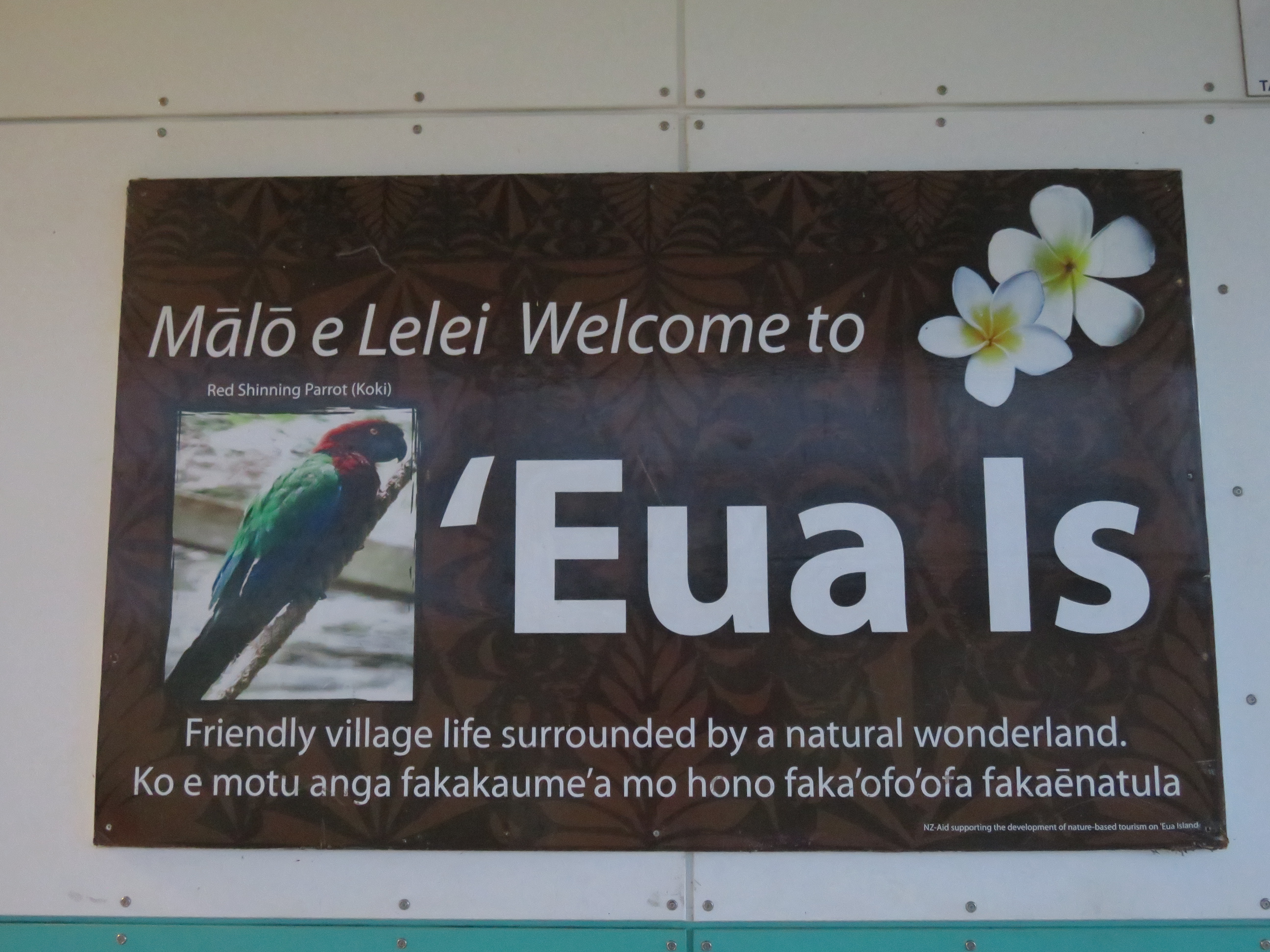Eating pig in Kolomaile
After the slave ship had taken half of 'Ata's people away, Tonga's king moved the remainder to the larger and safer island of 'Eua. They named their new settlement Kolomaile, after the settlement they had left behind on 'Ata. As we sat in a shady yard beside a table dominated by a recently slaughtered pig, the Masalu Halahala shared his family's long history with me, and I handed him documents about 'Ata that I'd discovered during my journeys through the archives of Australasia.
As I tried to explain in this 2010 essay, 'Eua is a very diverse island. As well as the descendants of the 'Atans at Kolomaile, it is home to a couple of thousand exiles from Niuafo'ou, an island in the extreme north of Tonga that exploded in 1946, and was evacuated soon afterwards. While some of the Niuafo'ouans, who speak their own language and have many unique customs, returned to their ravaged island, others took up an offer of land on 'Eua, where they created a series of settlements that boast the same names as the villages they left behind.
The Niuan settlements sit close to Kolomaile, and to villages established centuries ago by 'Eua's earliest inhabitants. Sometimes two different villages, with different traditions and different languages, sit on opposite sides of the same narrow road.
On our way to lunch with the Masalu Halahala, Cerian and I got lost - I was at fault, as usual - and found ourselves in the Niuan village of Petani. We were fiddling with our cellphone, which does not seem to work well on 'Eua, when a passing Niuan invited me into a kava circle. Thinking that I'd ask for directions, I stepped inside a nearby hall, slipped off my jandals, and downed a cup of kava. I was soon getting a lesson about Niuan history, and the eruption that turned half of Niuafo'ou into lava nearly seventy years ago. 'Eua is an island full of stories, where one could spend a lifetime listening and learning.
[Posted by Scott Hamilton]








